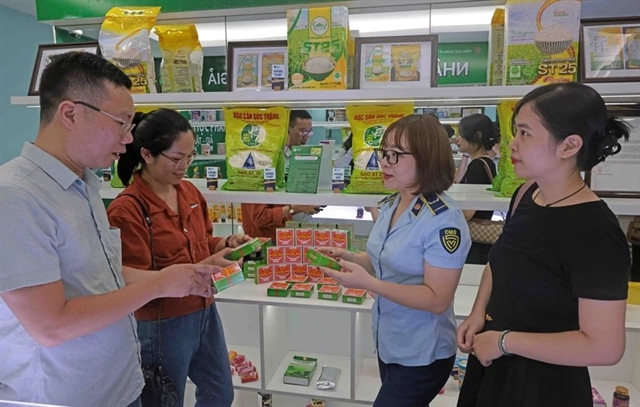Just 263 (or 8.8 per cent) of the 2,961 business households that suspended operations in May and June were subject to mandatory use of e-invoices. This suggests the new tax policy did not trigger the closures, as some had speculated.

HÀ NỘI - Nearly 3,000 business households in Hà Nội ceased operations in May and June, with tax authorities confirming that the shutdowns were largely driven by fear of inspections and concerns over counterfeit goods, rather than the recent e-invoicing requirements.
According to the regional tax department, 2,961 business households suspended operations during the two months. However, only 263 of these, equivalent to just 8.8 per cent, were subject to mandatory use of e-invoices under Decree 70/2025/NĐ-CP. This suggests the new tax policy did not trigger the closures, as some had speculated.
Tax officials attribute the wave of shutdowns to mounting anxiety among vendors over the possibility of being inspected for selling counterfeit, unlabelled or poor-quality goods, particularly in major markets such as Ninh Hiệp, Đồng Xuân, Long Biên, La Phù and commercial streets like Hàng Ngang and Hàng Đào. These areas are known for selling clothing, fabric, cosmetics, confectionery and other consumer goods.
“Business owners are not closing down because of e-invoices. They are worried about enforcement actions and traceability of their goods, especially those of unclear origin,” said a representative from the tax office.
There is also concern among some vendors that issuing e-invoices could reveal higher actual sales than previously declared under the flat-tax system, potentially leading to retroactive tax adjustments. However, tax authorities clarified that under current regulations, any adjustment to flat-tax levels is only made from the point when significant revenue changes are detected, not retroactively.
The e-invoice policy, implemented under Decree 70, applies only to households with annual turnover above VNĐ1 billion and aims to improve tax transparency without altering existing tax obligations. Out of over 311,000 registered business households in Hà Nội, just 4,979, or 1.6 per cent, fall under this requirement.
Despite early challenges, compliance has been strong. As of 11 June, 4,379 households subject to the policy had registered for point-of-sale-based e-invoices. Additionally, over 4,500 others not yet required to comply have voluntarily adopted the system, pushing registration rates to 180 per cent of the initial target.
Authorities emphasise that the primary aim of e-invoicing is to ensure fair taxation based on actual revenue and to help combat the circulation of counterfeit and unregulated goods. Tax offices have focused on outreach and support rather than enforcement.
“The e-invoice system does not disrupt business. Instead, it supports transparency and protects legitimate businesses,” the tax department stated, while urging vendors to request proper invoices when sourcing goods, in line with the Government’s broader campaign against fake and low-quality products. VNS




